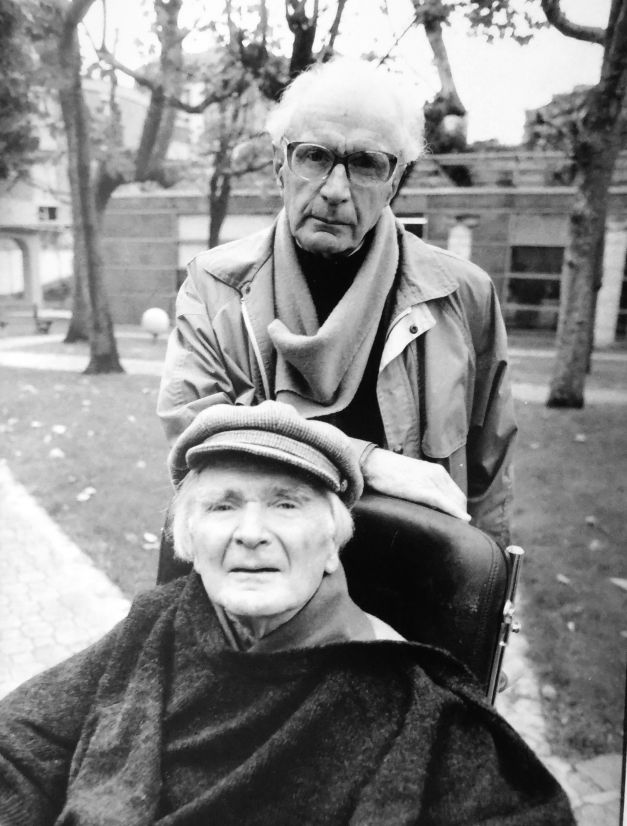Aurel Cioran, the younger brother of Emil Cioran, was born on 14 May 1914 in the village of Răşinari, Sibiu county, Romania (then part of the Austro-Hungarian Empire), and died on 27 November 1997 in Sibiu, Romania. His father Emilian, a Romanian Orthodox priest, was a member of the local elite involved in the political emancipation movement of the Romanians from the Austro-Hungarian Empire. His mother, Elvira Cioran (born Comaniciu) had roots in the Romanian minor nobility of Southern Transylvania. In the period 1932–1935, Aurel Cioran attended the Gheorghe Lazăr high school in Sibiu. From his teenage years, Aurel Cioran felt a strong attraction to Orthodox Christian Theology and he contemplated the possibility of becoming a monk. His brother convinced him to give up this intention. Consequently, he attended the Faculty of Law of the University of Bucharest in the period 1935–1937. During his university studies, he was influenced by the historian Nicolae Iorga and philosopher Nae Ionescu and socialised with young intellectuals such as Petre Ţuţea, Mircea Eliade, and Constantin Noica. Being influenced by this cultural milieu, he became a sympathiser of the Legionary Movement. From the 1930s onwards, he openly manifested his allegiance to the Legion and published pro-legionary articles in the Sibiu-based far-right newspaper Glasul Strămoşesc. He fostered a friendship with Constantin Noica, with whom he exchanged correspondence starting in the1960s (Sârghie 2012, 15). In 1937, Aurel Cioran started to work as an apprentice lawyer in Sibiu, and in 1940 he became a fully-qualified lawyer and was admitted to the Sibiu Bar.
In the period May 1942 to January 1944, Aurel Cioran served as an officer of the Romanian army in the Second World War. After returning home from the front he resumed his activity as a lawyer until March 1948 when he was purged from the Sibiu Bar. Due to his allegiance to the Legionary Movement he was arrested in June 1948, and convicted along with twenty-six others for conspiring against state security. He spent seven years in political prisons in Romania. After his release from prison, Aurel Cioran worked for eight years as unskilled worker and he was never again allowed to practice as a lawyer. Starting in the1960s he exchanged an intense correspondence with his brother, Emil Cioran, who had chosen to remain in France after the Second World War, and with other intellectuals such as Constantin Noica. According to Stelian Tănase, his correspondence was kept under close surveillance by the Securitate (Tănase 2009b). In 1981, the Securitate allowed Aurel Cioran to visit his brother in Paris, although this kind of permit was rare under communism in the case of former political prisoners. The strategy of the Securitate was to allow him to visit France in the hope that he would convince his brother to return to Romania in his old age. Emil Cioran’s possible return to Romania was perceived as a legitimising event by the Ceauşescu regime. The Securitate also tried to press Aurel Cioran to collaborate with them, but their attempts ended in failure (Tănase 2009b).

